On August 30th, 2016, the "Molecular Breeding Innovation Forum - New Technologies and New Progress Seminar" co-sponsored by Beijing Boao Crystal Code Biotechnology Co., Ltd. and Affymetrix Company was held in Hilton Beijing. More than 100 breeding experts and scholars from Chinese Academy of Sciences, Chinese Academy of Agricultural Sciences, China Agricultural University, Nanjing Agricultural University, and Zhengzhou Tobacco Research Institute attended the meeting. All participants in the Molecular Breeding Innovation Forum "Molecular Breeding Innovation Forum" lively Mr. Xu Junquan, President of Beijing Boao Crystal Code Biotechnology Co., Ltd., delivered the opening speech Jia Jizeng, a researcher from the Chinese Academy of Agricultural Sciences, made a report Xu Yunbi, Researcher, Institute of Crop Science, Chinese Academy of Agricultural Sciences, made a report Dr. Wang Wensheng, Research Associate of the Crop Science Research Institute, Institute of Crop Science, Chinese Academy of Agricultural Sciences, made a report Researcher Tian Zhixi, Institute of Genetics and Developmental Biology, Chinese Academy of Sciences, made a report Yu Deyue, State Key Laboratory of Crop Genetics and Breeding at Nanjing Agricultural University Dr. Wang Qianjie, product manager of Affymetrix, made a report Beijing Boao Crystal Code Biotechnology Co., Ltd. Life Science Service Director Qin Wenyan made a report Beijing Boao Crystal Code Biotechnology Co., Ltd. Agricultural Department Project Ren Yonghong Director report Participants are fully focused on recording meeting content Representatives showed great interest in the chip platform independently developed by our company Different kind of Transport Swab,viral transport swab, bacterial swab. Transport Swab,Sample Collection Swab,Viral Transport Swab Luck Medical Consumables Co.,LIMITED , https://www.luckmedical.com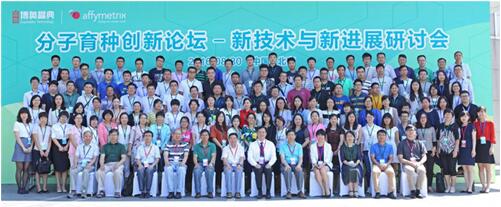
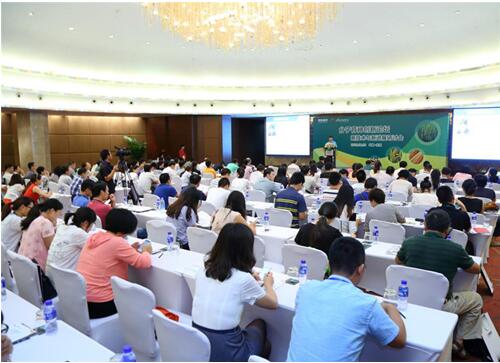
Mr. Xu Junquan, President of Beijing Boao Crystal Code Biotechnology Co., Ltd., delivered an opening speech for the conference. Mr. Xu Junquan said that the technology of plant molecular biology has been continuously developing. At the same time, the application of high-throughput molecular detection technology such as biochips and second-generation sequencing has brought unprecedented opportunities and challenges to crop breeding, based on hybridization. Traditional breeding methods will shift to more accurate and efficient molecular marker-assisted breeding methods. Finding and developing molecular markers closely linked to dominant traits, selecting suitable detection methods or integrated solutions will be the key to achieving molecular marker-assisted breeding. The organizers hope that through this forum, experts and the majority of breeding workers will be provided with a multi-discipline platform for the latest technology and progress in molecular breeding, and jointly promote the research and development of agricultural breeding. Professor Xu Yunbi, a researcher of the Institute of Crop Science of the Chinese Academy of Agricultural Sciences and the national “Thousand People Project†special expert, was invited to host the forum. 
The forum featured eight special guest speakers of the conference. They were Jia Jizeng, research fellow at the Chinese Academy of Agricultural Sciences, Xu Yunbi, researcher at the Institute of Crop Science, Chinese Academy of Agricultural Sciences, and Wang Wensheng, associate researcher at the Li Zhikang Research Group, Institute of Crop Science, Chinese Academy of Agricultural Sciences. Genetics and developmental biology at the Chinese Academy of Sciences. Research Institute Tian Zhixi, Professor, Professor Yu Deyue, State Key Laboratory of Crop Genetics and Breeding, Nanjing Agricultural University, Director of Life Science Services Department, Beijing Boao Jingdian Biotechnology Co., Ltd., Director Qin Wenyan, Product Manager of Affymetrix, Dr. Wang Qianjie, Beijing Boao Crystalline Biotechnology Co., Ltd. Technology Co., Ltd. Agricultural Project Department Ren Yonghong Director. 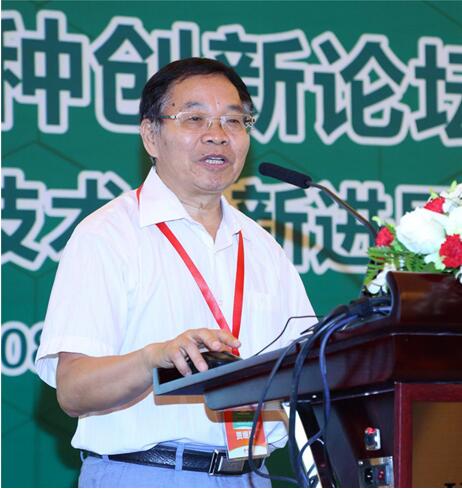
At the beginning of the conference, Jia Jizeng’s researcher made a report on the “Development and Application of Wheat High Density SNP Chipsâ€. The report focuses on the development ideas and progress of the wheat 660K SNP chip with independent intellectual property rights, and compares it with SNP chips of different specifications that were previously launched by the United States, France, and the United Kingdom. The wheat 660K high-density SNP chip developed in cooperation with Boo's crystal code and Jia Jengzeng's research group has been widely used in major wheat research institutes across the country, completely changing the situation in which molecular markers are completely dependent on foreign countries. The chip has high flux, high polymorphism, high label density, uniform distribution, high resolution, high degree of automation, clear genome information, a wide range of applications and many other advantages, can be applied to establish high-density genetic linkage maps, gene refinement Mapping and gene cloning, diversity of germplasm resources and construction of genomic breeding platforms, wheat tribal classification and comparative genomics research, etc. 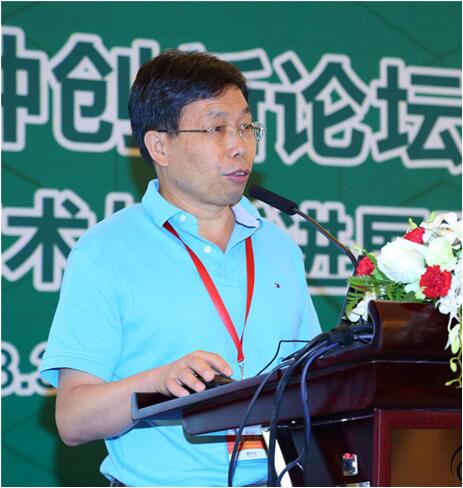
Xu Yunbi's researcher made a report on "molecular plant breeding: opportunities and challenges." The report starts with the challenges faced by China's food security issues, and suggests that the increase in yield potential and the reduction in the yield gap depend on various modern breeding methods, comprehensive agronomic measures, and socio-economic systems, and molecular breeding will play an important role. Next, through the detailed analysis of genetic mutation capture and selection, environmental variation detection and control, genetic improvement of complex traits, and comprehensive application of breeding methods, the opportunity and challenge of molecular breeding were introduced. Among them, the concept of Envirotyping (environmental identification) has caused great interest among the participants. Finally, the development process and chip characteristics of the maize 55K SNP chip are introduced. This chip is suitable for fingerprint analysis of germplasm resources, preliminary and fine-grained gene mapping, and is particularly suitable for warm-tropical maize populations, molecular marker-assisted backcross breeding, and gene accumulation. , recurrent selection, whole genome selection, preliminary genome-wide association analysis of warm tropical maize population, etc. 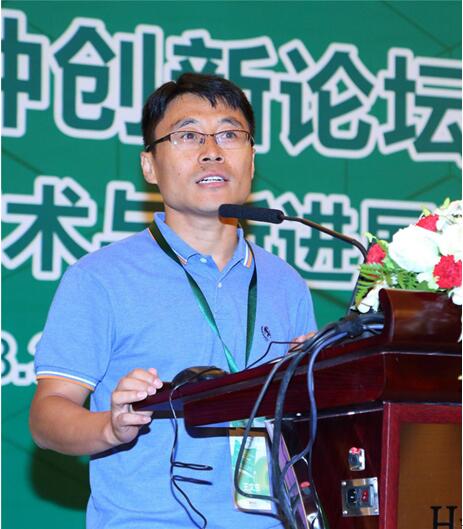
Wang Wensheng, associate researcher, made a report on “3000 Rice Genome Project and Green Super Rice Breeding Technologyâ€. The report pointed out that the current situation of grain production in China is not optimistic. It is urgent to adopt the “second green revolution†to convert “high input, high production, and polluting environment†into “less input, more output, and protect the environment†and cultivate at a lower level. (Fertilizers, water, and pesticides) Green super rice with high yield and stable production under input conditions. The report also introduced in detail the ideas and processes for designing and developing a whole genome high density 55K chip based on the 3000 Rice Genome Project. The genome-wide high-density 55K chip of rice is highly polymorphic and has a polymorphic marker of 10-25K. The average distance between SNP loci on the chromosomes was 6.84K, and the median value was 5.3K. The proportion of diversity SNP markers and available SNP markers (including PolyHighResolution, MonoHighResolution, OTV) was very high, accounting for 86.6% of the total chip positions.
About the SNP chip development project for soybeans, Professor Tian Zhixi, Institute of Genetics and Developmental Biology, Chinese Academy of Sciences, and Professor Yu Deyue, State Key Laboratory of Crop Genetics and Breeding, Nanjing Agricultural University, respectively, with "Reflection on the Application of Genome in Soybean Breeding" and "Soybean High A special report was made on the subject of the development and utilization of the 355 K NJAU SoySNP chip. 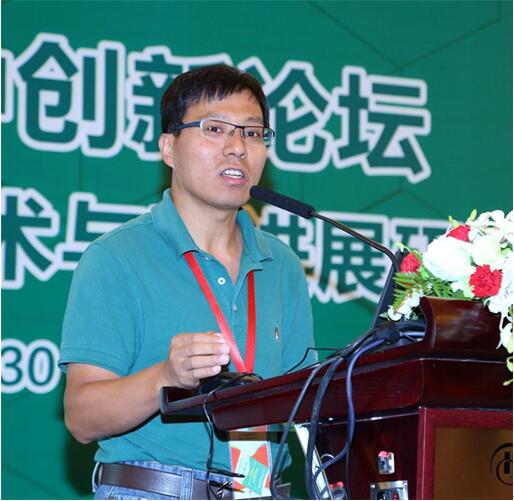
Professor Tian Zhixi pointed out in his report that soybean is an important grain and oil crop, but China has now changed from a soybean country and a soybean producing country to the world’s largest soybean importer. The soybean crisis has affected China’s food security. Therefore, it is necessary to use gene combination functional genomic research methods to systematically analyze the network regulatory systems affecting soybean yield and quality, revealing the intrinsic mechanisms governing soybean seed development, plant morphogenesis and quality formation, and promoting soybean molecular breeding research. In the report, the development ideas of soybean SNP chips were briefly introduced. 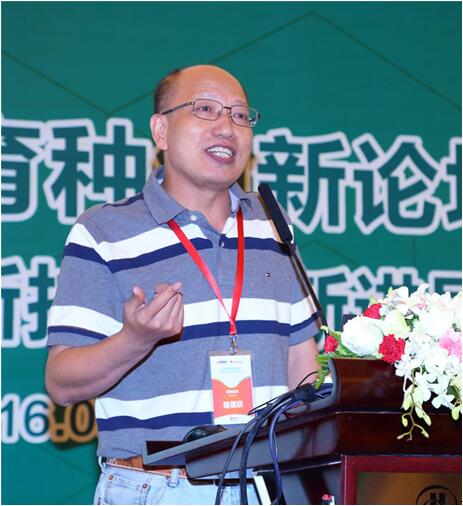
Professor Yu Deyue focused on the development ideas and applications of the NJAU 355 K SoySNP chip. The NJAU 355 K SoySNP chip is representative and the SNP locus is derived from the wild and cultivated soybean SNP database and represents the diversity of wild and cultivated soybean populations. It has strong applicability and can be used for soybean diversity analysis and functional gene excavation. With high accuracy, the 355 K SNP marker was screened in more than 6 million SNPs according to strict criteria. The markers were evenly distributed. The markers evenly covered 20 chromosomes of soybean. The interval of 93.6% SNP markers was less than 9 kb. The average physical distance between markers was 3.3 kb. Automated, the Soybean 355 K SNP chip is based on the Affymetrix GeneTitan GeneChip Analysis System product platform, which fully automates the reading of data, eliminates the need for manual correction of results, avoids human error, and is accurate and efficient. It can be applied to genotype identification, variety identification, genetic diversity analysis of soybean germplasm, genome-wide association analysis (GWAS) of soybean agronomic traits, functional gene/QTL mapping and cloning, soybean molecular design breeding (molecular marker assisted selection, Whole genome selection breeding etc.) etc. 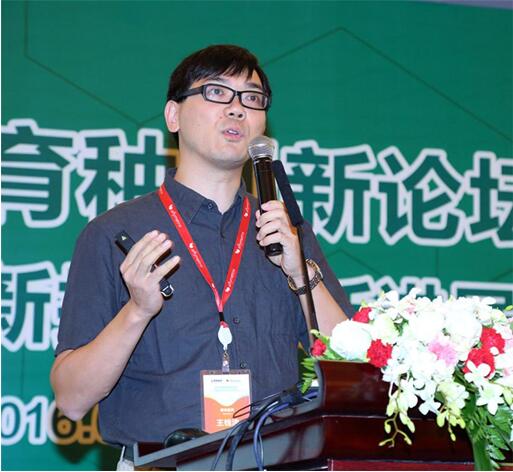
Dr. Wang Qianjie, Product Manager of Affymetrix, was invited to publish the theme report “Affymetrix 'Thinking'â€, which systematically interprets Affymetrix's agricultural genome solutions, including Affymetrix's agricultural genome research strategy, Affymetrix Genotyping solution, and 22 existing models. Different species research catalog chips, Axiom screening for custom chips + design flow, and Axiom Analysis Suite. In addition, Affymetrix's Eureka Assay platform and applications, as well as the newly introduced Axiom microbiome chip are described in detail.
In the end, Dr. Qin Wenyan, Director of the Biosciences Life Science Services Department, and Ms. Ren Yonghong, Director of the Agricultural Project Department, respectively introduced the 10X Genomics large-fragment library analysis platform and the microfluidic chip with proprietary intellectual property rights introduced by Boco. Application in the field of agriculture. 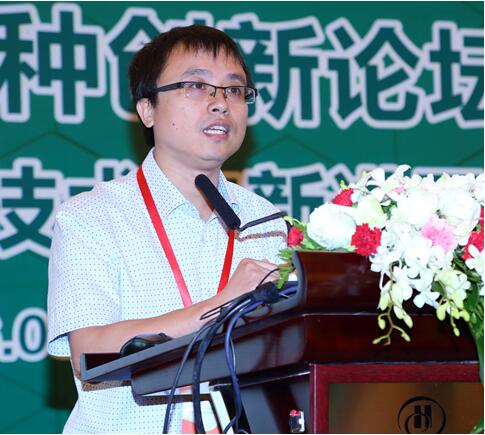
Director Qin Wenyan introduced that the core advantage of the 10X platform is the use of genomic DNA greater than 50 kb in length to construct a sequencing library, which overcomes the shortcomings of second-generation sequencing that cannot accurately obtain large structural information, while avoiding the low accuracy and cost of third-generation sequencing. The shortcomings combine perfectly with high-quality sequencing, obtaining large fragment structure information, and low cost. The use of the 10X platform to build sequencing libraries has advantages in breeding: genome de novo assembly: genetic map construction, assembly quality improvement, cost reduction; large-scale genetic characteristics: copy number variation and structural variation, improving detection accuracy; Research on traits of type regulation: increase the analytical ability of complex traits, detect the aggregation status of multiple target genes on one chromosome, detect minor variations: SNV & Indel detection, GWAS research, etc. Economical and practical platform to achieve accurate and reliable, fast and simple, low-cost molecular detection and identification. 
Ren Yonghong, director of the microfluidics technology, introduced Boo Crystal's microfluidic products and achieved results. In addition, the microfluidic SNP chip detection system with proprietary Chinese intellectual property introduced by Boyu Jingdian was introduced in detail. This is an economical and practical platform that can achieve accurate, reliable, fast, simple and low-cost molecular marker detection. At present, SNP genotyping has been performed on humans, cows, corn, and sheep on this platform, and good results have been obtained. Boao Crystal Code hopes to build a microfluidic SNP chip detection system into a powerful tool, promote the improvement of agricultural breeding efficiency and efficiency, realize variety certification, protection of variety rights, and comprehensive multi-disciplinary market monitoring. At the same time, we can develop upstream applications from mark development to downstream applications, provide overall solutions for the majority of workers, and serve as a bridge between “basic research for public welfare†and “commercial breedingâ€. "Integration of Production, Study, and Use" Integration. 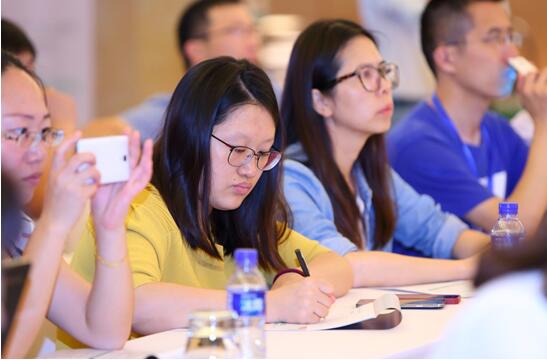
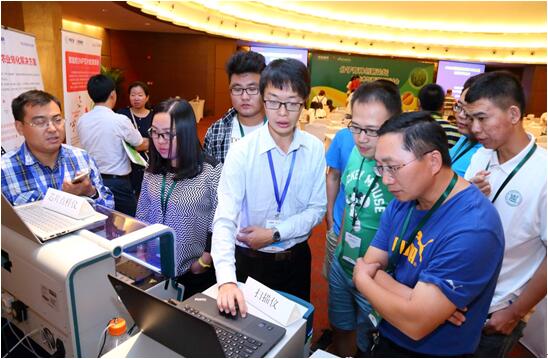
People take food as their food. The food issue is related to the people's livelihood. It is related to the development of the country. Driving the development of seed industry with technology is the fundamental solution to the food issue. At present, the state and major ministries all give great attention and support to the development of seed industry. As a company dedicated to exploring biotechnology, Boao Crystal Code will continue to contribute to the development of seed industry in China in the subsequent development. Take the power to take practical actions to benefit the people's livelihood. For more details, please click the Boao Crystal Code official website: http://
New Technology, New Progress Boyo Crystal Code Holds Molecular Breeding Forum
Next Article
Plum shaping and trimming techniques